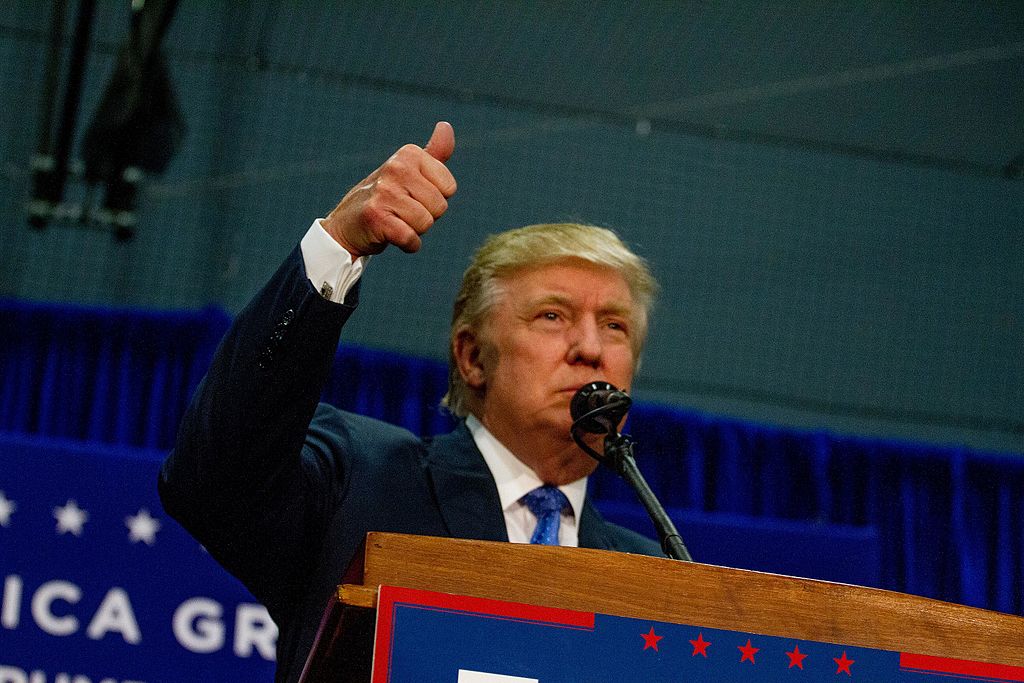It takes some bravado for a man who failed to win the popular vote by nearly three million votes, and who enters the White House with the lowest approval ratings in living memory, to play the Populist card. But President Donald J Trump gave it a real go.
Writing those words, and typing ‘Donald Trump Inaugural Address’ into Youtube, have a lingering surreal feeling to them. After the bizarre set of circumstances that have conspired to put that man on that stage at this moment, I was expecting either a train-wreck of offensive gibberish, or an attempt to rebrand a ‘new Trump’ with a calm, dull, ‘Presidential’-looking speech. Either way, we weren’t going to get anything worth writing about. My fear was that, like everything else, this would become all about him, gloating in his victory.
But you know what? It was good.
It was also a bizarre and erratic speech. The Inaugural Address is a tried, tested and well established format – we all know more or less what a President is going to say before he says it. Or at least, we usually do. I’m struggling to think of the question a group of speechwriters asked the President-Elect to which that speech was the answer. Many will have seen the image (now meme) of Trump hunched over a desk looking like a GCSE student who’s left his coursework until the night before, captioned with: “Writing my inaugural address.” And the speech does have a rough feel to it, as though slapped together with more force than care.
It’s basically three ideas bolted back-to-back, hung together on the ‘America first’ motif. Obama-esque poetic lecture this was not.
But for the first nine minutes, he gave us a genuinely effective non-partisan call to radical populism, casting “you” as “the people” and ‘them’ as Washington politicians. Not subtle, but effective. The optics of doing so (literally) on the doorstep of the Capitol Building made for a genuinly striking striking image of popular democratic revolt.
Then it was infused with technocratic frustration – “now arrives the hour of action” – the idea that if only politicians would work for the people and not themselves, and have some ‘real-world’ proven competence, then politics could work.
If you randomly selected a member of the public to talk about politics for 15 minutes, I suspect the sentiments expressed wouldn’t be too far off the two he came up with.
Right in the middle is dashed a three-minute blast of vintage Trump that threatened to throw the whole thing off the rails, complete with all the patriotic/nationalist (depending on your preference) fervour you would expect. But then it ends, as if at some point in the two-month transition Donald Trump has learned restraint.
Some have taken against the ‘America first’ phrase, and I can understand why. But the real theme of the speech wasn’t just America first – it was ‘YOUR America first’. “This moment is your moment…this is your country”, “transferring power from Washington, DC and giving it back to the people” – casting Trump as the warrior of the people, the master deal-maker in whom they have delegated their trust. In the end, it’s on that idea that the whole speech hangs together. It paints a siege-mentality picture, listing off many supposed enemies and threats, but emphasising the strength and power of the American people – if only everyone would get on his side. There was no more talk of ‘my enemies’ or opposition to his Presidency, instead he made the wise call to just ignore it. America had problems and a grand task ahead of it, Trump tells us, and the call of patriotism is the mission of the Trump Administration.
Did it bring anyone around who thought him irredeemable as a human being? No, probably not, but nothing he could have said would have convinced those people – and his remarks could have been a whole lot worse in that regard. He barely mentioned immigration head-on, and for 16 minutes I thought we were going to go a whole speech without hearing ‘Make America Great Again’.
But did it make re-election a little more likely, begin building a popular foundation for the mission of his presidency, or enhance his ability to play the bully pulpit against Congress if they don’t go his way? For my money, yes to all three.
I find it remarkably plausible that there is a quiet majority of Americans, gathered in living rooms and office buildings across the country, who sat listening to the President’s remarks and found a lot to agree with. Perhaps even despite themselves. Congress has been put on warning: if they thought Trump a ‘useful idiot’ who will sign their laws and leave them alone, he gave them pause for thought – Democrats and Republican alike, he showed that the popular anti-Washington rhetoric of campaign-mode Trump did not die with its victory. Far from the normal olive-branch Inaugural, this sounded like a declaration of war – with politicians the enemies-in-chief.
To be clear – I’m not saying any of this makes Trump more likely to be a good President. There have already been decisions made in the first 24 hours that will divide opinion to say the least, and who exactly “you” refers to in the abstract of ‘the people’ will surely be cause for concern. But I do think this speech was a surprisingly successful launching-pad for a Presidency mired in controversy before it began – and any President that can start their time in office with a quiet majority of people nodding along in agreement, especially after a uniquely divisive election, is doing something right. Whether Trump being successful is good a thing for America and the world, is up to you.
But those who think that Trump is an incapable fool who will wither away under the demands of Presidential pressure – well, they might just need to have a rethink.


Very well written and thoughtul piece